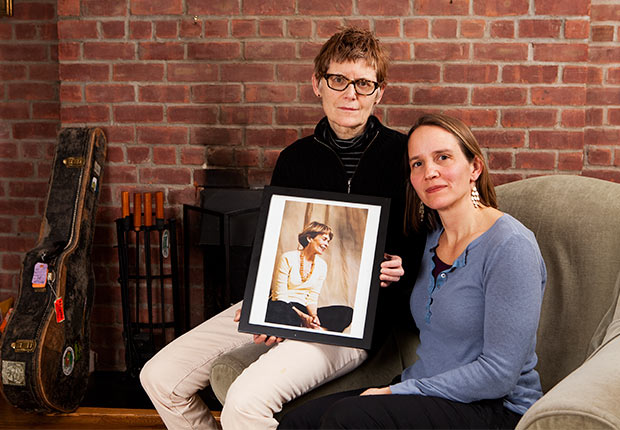AARP Hearing Center

By Ann Levin
When Joan Long was discharged from the hospital to a rehab facility and then sent home in January 2013, she had a new colostomy, a major abdominal wound, a complicated schedule of medications, and cognitive impairment stemming from prior treatment for a brain tumor.
At no point in the discharge process did the medical staff sit down with her caregivers, Sarah Marques and Katie Patterson, and map out how to help Long manage by herself in her Manhattan studio apartment. They were overwhelmed.
“Neither of us had adequate instruction on how to care for [her] wounds,” recalled Patterson, 43, Long’s cousin and a registered nurse. “I think the institution could have done a better job of preparing us.”
Marques, 59, a longtime friend, said Long’s care plan was “haphazard” and “put together with string and tape. We had to work the pieces together, and the timing wasn’t beneficial for Joan or the progression of her illness.”
Six months after she was released, Long, an artist and recreational therapist, died in hospice from complications from the brain tumor. She was 70.
Because of their experience caring for Long, Marques and Patterson strongly support the Caregiver Advise, Record, Enable (CARE) Act, a bill before the Legislature that would require hospitals to train caregivers to perform basic medical tasks at home.
Similar legislation passed in New Jersey and Oklahoma last year and is expected to be considered in numerous states this year.
An AARP New York survey in 2014 found that half of 50-plus voters in the state had served as caregivers to a spouse, relative or friend in the past five years. And while the vast majority of older New Yorkers say they want to remain at home as they age, according to AARP, the health care system doesn’t always make it easy to do so.
Lack of communication
A recent AARP New York report identified major gaps in hospital discharge policies in the state, which currently has no law requiring hospitals to consult with caregivers on discharge planning or train them in tasks to be performed after discharge.
This lack of communication, the report said, puts patients at risk of adverse drug reactions, hospital-acquired infections and other complications. AARP believes that not involving the caregiver could lead to higher rates of readmission, when patients who are released return shortly for the same ailment.
For the most recent data available (2012), the report found that only six New York hospitals statewide with 100 or more beds had a readmission rate that was better than the national rate of 16 percent.
At the same time, the report noted, the caregiver’s role is more important than ever, due to shorter hospital stays mandated by federal law, the fragmentation of follow-up care among various providers, and the expectation that caregivers can handle complicated medical tasks at home.
The Greater New York Hospital Association declined to comment.
Like Marques and Patterson, Cynthia Wayne, 61, of Brooklyn, also learned caregiving on the fly. When she lost her banking job during the recession, she became a full-time caregiver for an older cousin, Audrey Thorne, whom she calls “Auntie.”
Thorne, 96, had been hospitalized repeatedly. After her last major hospitalization, in 2012, her doctors wanted to discharge her to a nursing home.
Wayne is originally from Guyana, where, she said, relatives are expected to take care of their loved ones at home. She said “no” and took Thorne home. Since then, Wayne has pieced together 24-hour care for her bedridden relative,
who still lives in her own Manhattan apartment.
“I never had any training,” Wayne said. “I would absolutely say that some training for relatives who are caregivers could only be good.”
Beth Finkel, AARP New York state director, said the organization is seeing a preparation gap. “Through no fault of their own, family caregivers are often ill-equipped to care for their loved ones at home after discharge from the hospital. AARP believes hospital patients’ caregivers need to be identified, and those caregivers must be shown how to carry out any aftercare duties before discharge.”
Ann Levin is a freelance writer living in New York City.































































